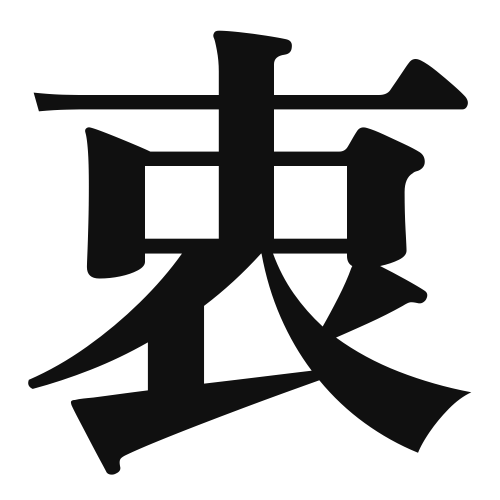1. Overview of Meaning
The kanji “衷” (pronounced “chuu”) generally means “heart,” “center,” or “inner part.” It conveys a sense of being sincere or genuine, often referring to one’s true feelings or intentions.
2. Formation and Radical
Formation of the Kanji: The kanji “衷” is a compound character that combines elements to convey its meaning. It is formed from the radical “衣” (clothing) and the phonetic component “中” (middle), suggesting a connection between the inner self and outer appearance.
Radical: The radical of “衷” is “衣,” which relates to clothing or fabric, indicating a connection to the outer layer that covers the inner self.
3. Examples of Usage
Common Words and Phrases: Some frequently used words that include “衷” are “衷心” (chuushin – heartfelt) and “衷情” (chuujou – sincere feelings).
Example Sentences in Daily Conversation:
- 彼の衷心からの謝罪を受け入れました。 (I accepted his heartfelt apology.)
- 衷情を伝えることは大切です。 (It is important to convey sincere feelings.)
4. Synonyms and Antonyms
Similar Kanji: A similar kanji is “心” (kokoro), which also means “heart” but is more focused on emotions and thoughts rather than the inner self or sincerity.
Opposite Kanji: An antonym could be “偽” (nigi – false), which means “false” or “deceptive,” contrasting with the sincerity implied by “衷.”
5. Cultural and Historical Background
Connection to Japanese Culture: In Japanese culture, the concept of “衷” is significant as it emphasizes the importance of sincerity and genuine feelings in relationships and communication.
Proverbs and Idioms: One relevant proverb is “衷心より感謝します” (I thank you from the bottom of my heart), which highlights the value placed on heartfelt expressions in Japanese society.
